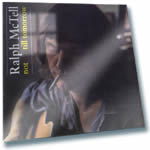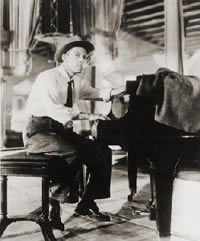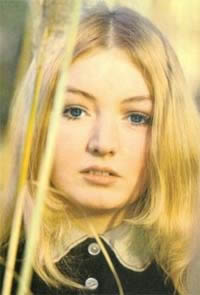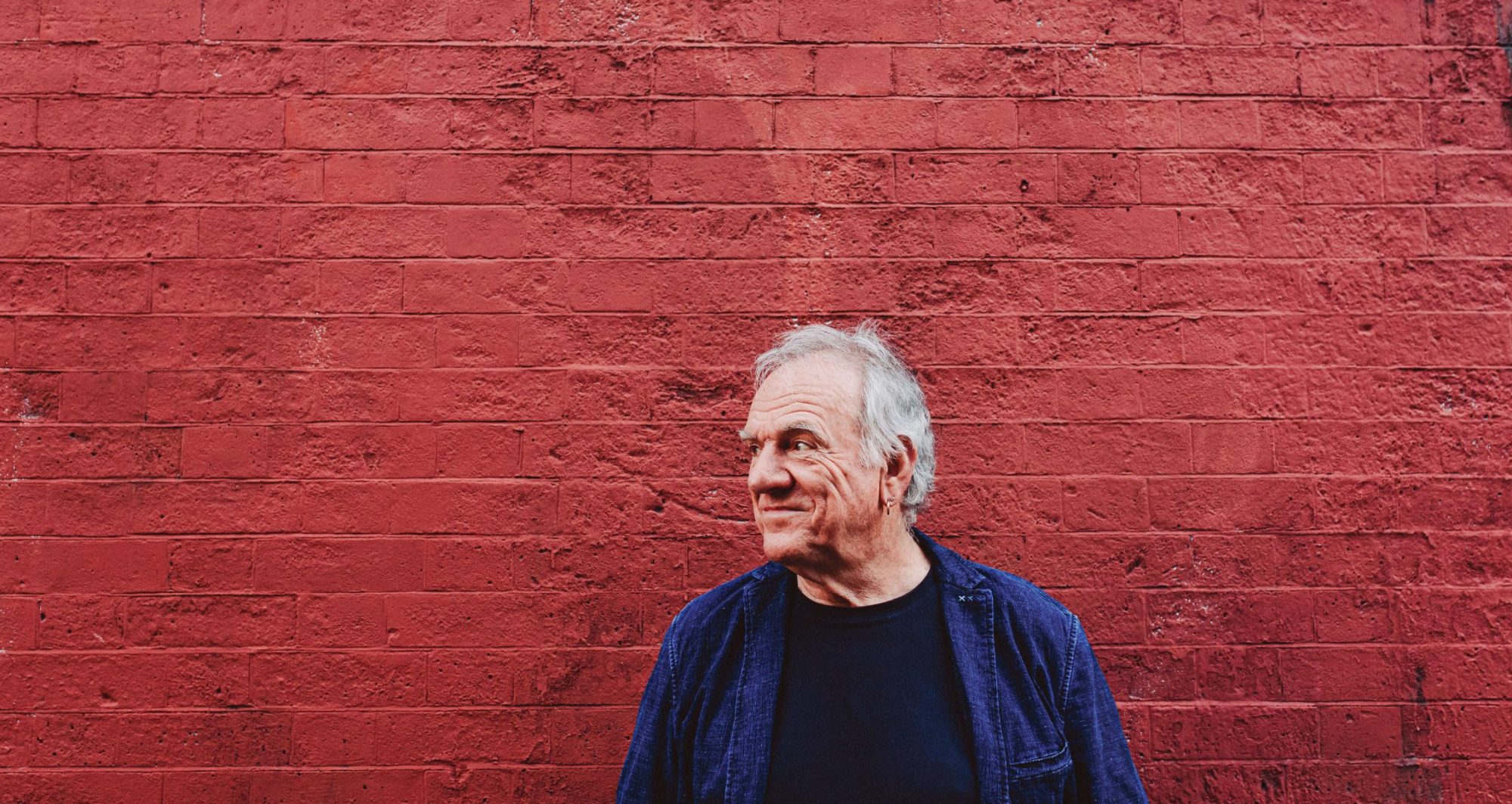Not ‘Till Tomorrow
 When I look back I sometimes wonder how any kind of career developed at all. The only continuity linking my recordings were my songs and guitar and you often could not hear my guitar. All I ever wanted was to record my songs with guitar and voice. I was utterly seduced by string arrangements and I think I felt that by having great musicians backing me they gave my songs more credibility. My standards were set against the great melody writers of former decades. Hoagy Carmichael, Cole Porter etc. and though my own musical ability was far inferior to theirs I aspired to write good tunes with my sparse knowledge and to play full guitar parts to flesh them out through the syncopation and polyphony of finger style guitar. This I had learned from the great black finger style pickers of the past and my Paris friend Gary Petersen. My last album had taken me a long way from my folkie roots and I loved it but I still hankered after a more simple approach as well.
When I look back I sometimes wonder how any kind of career developed at all. The only continuity linking my recordings were my songs and guitar and you often could not hear my guitar. All I ever wanted was to record my songs with guitar and voice. I was utterly seduced by string arrangements and I think I felt that by having great musicians backing me they gave my songs more credibility. My standards were set against the great melody writers of former decades. Hoagy Carmichael, Cole Porter etc. and though my own musical ability was far inferior to theirs I aspired to write good tunes with my sparse knowledge and to play full guitar parts to flesh them out through the syncopation and polyphony of finger style guitar. This I had learned from the great black finger style pickers of the past and my Paris friend Gary Petersen. My last album had taken me a long way from my folkie roots and I loved it but I still hankered after a more simple approach as well.
Gus was now in huge demand and my new record company Reprise put Tony Visconti forward as a potential producer. Tony and I had always got along and he had booked me to play on Mary Hopkins’s first album. She had even recorded three of my songs. Tony and Mary were now Mr and Mrs Visconti and we met at their flat in Courtfield Gardens to talk things over. Jo Lustig my manager, had recently installed a car stereo and my mind was diverted from his terrible erratic driving by Neil Young’s latest album. I thought to myself that this was a direction I should go in and my new songs were a return to less sophisticated approach. My American experiences had been dramatic and some of these were reflected in Standing Down In New York Town. These were the opening lines of a song I used to busk with in Paris. I had demoed the tune with Gary on a visit over there to play on a record with George Chattelaine.

When I was a Cowboy almost had the same opening lines as the Leadbelly classic Out on the Western Plains. In my naiveté I thought the listener would pick up all this short hand cryptic reference stuff. It was a way of showing that I had not forgotten my route to where I now found myself. I had not realised that not everyone would have taken the same road as I had.
First Song Was the first song to which I ever wrote the words first. Barges was the first tune that I could actually trace to another composer, Greig. I rationalised it by saying that “Dawn”was an appropriate borrowing, as my song was about realisation and the beginning of a journey from boyhood to becoming a free man.
Tony showed infinite patience and care. He bought the wooden recorders to play on that song and composed the simple but beautiful arrangement. Neither of us were accomplished keyboard players but we achieved the competent Hammond organ performance on This Time of Night. By recording it piece by piece even the glissando was done separately.
My politics were still idealistic and Zimmerman Blues and Birdman the most overt of the songs on this album. I was reading Soledad Brother the story of George Jackson the black activist and his love and deep respect for the radical Angela Davis. When I read somewhere else that Bob Dylan had invested money with the headman of Playboy magazine (Hugh Heffner) in a building project in Chicago. I was confused and bewildered. What of the promise of revolution and change?

Bob had recently performed at a benefit for Angela Davis and the two extremes confused me. I continued to love Bob’s work it was just the ethic that was puzzling. I thought maybe he had the Zimmerman blues too. I used his real name to try to strip away the identity he had assumed so as to reveal his true self not what he had become and I hoped that it would be a reminder to me as well that the changes you go through are not always the best ones.
Birdman was a major song for me as it gave me a chance to show that I was still playing my Robert Johnson album and that my politics were still to the left. In this song I tried to compare the two characters John Henry a black railroad worker and George Jackson a black activist. The former chose to take on the system with his strength against a steam hammer which if successful would have put men out of work. George Jackson tried to take on the political system by raising black consciousness even suggesting that passive resistance might be the way. I called the song Birdman as a nod to the prison slang for serving time. Also the cage in which he was imprisoned while his mind remained free. Like Burt Lancaster in “The Birdman Of Alcatraz”
When Jackson was shot dead during an alleged prison break attempt was the day I really had to grow up. I had always believed that he would be one day found innocent and released and his sacrifice would be an inspiration to others deprived of their civil rights and justice as whole. On hearing of his death I think I was more shocked than when Kennedy was assasinated. It should have signalled the onset of cynicism but I am happy to say that writing the song helped me over my despair and frustration. Paradoxically I heard the awful news whilst I was staying in a tiny idyllic cottage in Wales and writing Nettle Wine. I had played the tune to Caleb Quaye (Hookfoot) in New York and he encouraged me to finish it.

Sylvia was a tribute to the desperate plight of poor Sylvia Plath. I read her book of poems “Ariel” like you would read a story and sat down and wrote the song. Tony made me drink a couple of glasses of red wine to steady my emotions and my hands when we put that song down at Sound Techniques Studios, live in one take piano and vocal. We even did some recordings at Tony’s house to try out a wonder microphone. It was made by Eagle and it cost £16.00 We recorded all the vocals on that mic in preference to the ones costing thousands in the studios.
I wrote Another Rain Has Fallen for English Tapestry who had sung on Kew Gardens. Tony played sitar on that song and I believe English Tapestry recorded it but at this time of writing I have never heard it. This album features many songs that are still part of my repertoire. I guess
Gypsy is one of my favourites on it. The sentiments expressed still fill me with hope and I can still easily capture that intoxicating feeling of real freedom through this song.
Once the album was mixed and I had insisted on my smoking on the cover photo (it was a Gauloise) we sent all the parts to the factory for production. The photographer came and we shot some snaps down on the Thames towpath at Putney with my beloved collie Jessie. I still had not come up with a title for the album and had asked for another day or two to think of something. A couple of days later the printers rang up and asked if we had a title ready yet? “Not till tomorrow” Jo’s secretary replied, in reality asking for one more day to come up with something. And that is how it got its name…

Just a couple of months ago I got a surprise e-mail from Tony Visconti. I had not previously heard from him for about twenty-five years! He told me that he was once again working with David Bowie and had recently acquired a cd of Not ‘Till Tomorrow from the internet and was listening back to the recording each day whilst travelling to the studio to record David’s new album. He said he loved the “Low Fi” and all the songs brought back great memories. I wrote back saying that I felt exactly the same.
Ralph McTell
